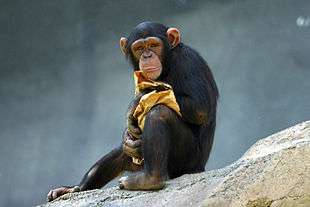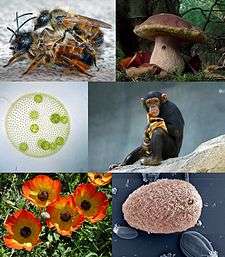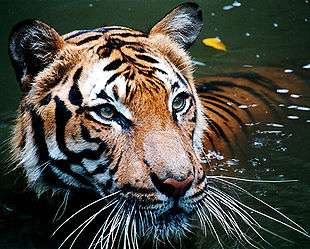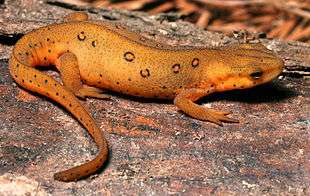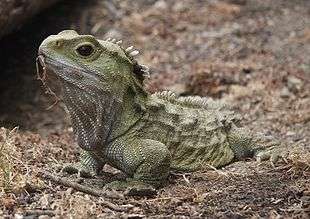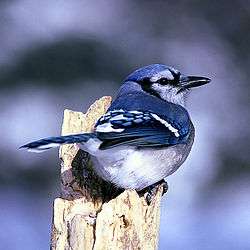Definify.com
Webster 1913 Edition
Animal
An′i-mal
,Webster 1828 Edition
Animal
AN'IMAL
,Definition 2026
Animal
animal
animal
English
Noun
animal (plural animals)
- In scientific usage, a multicellular organism that is usually mobile, whose cells are not encased in a rigid cell wall (distinguishing it from plants and fungi) and which derives energy solely from the consumption of other organisms (distinguishing it from plants).
- A cat is an animal, not a plant. Humans are also animals, under the scientific definition, as we are not plants.
- In non-scientific usage, any member of the kingdom Animalia other than a human.
- In non-scientific usage, any land-living vertebrate (i.e. not birds, fishes, insects etc.).
- 2013 July-August, Henry Petroski, “Geothermal Energy”, in American Scientist, volume 101, number 4:
- Ancient nomads, wishing to ward off the evening chill and enjoy a meal around a campfire, had to collect wood and then spend time and effort coaxing the heat of friction out from between sticks to kindle a flame. With more settled people, animals were harnessed to capstans or caged in treadmills to turn grist into meal.
-
- (figuratively) A person who behaves wildly; a bestial, brutal, brutish, cruel, or inhuman person.
- My students are animals.
- (informal) A person of a particular type.
- a political animal
Synonyms
- (organism): beast, creature
- (non-human organism): beast
- (person who behaves wildly): brute, monster, savage
Hyponyms
- See also Wikisaurus:animal
Related terms
Translations
|
|
|
|
|
|
Etymology 2
From Latin animalis, from either anima (“breath, spirit”) or animus. Originally distinct from the noun, it became associated with attributive use of the noun and is now indistinguishable from it.
Adjective
animal (not comparable)
- Of or relating to animals.
- animal instincts
- Raw, base, unhindered by social codes.
- animal passions
- Pertaining to the spirit or soul; relating to sensation or innervation.
- 2003, Roy Porter, Flesh in the Age of Reason (Penguin 2004), page 47:
- To explain what activated the flesh, ‘animal spirits’ were posited, superfine fluids which shuttled between the mind and the vitals, conveying messages and motion.
- 2003, Roy Porter, Flesh in the Age of Reason (Penguin 2004), page 47:
- (slang, Ireland) Excellent.
Synonyms
- (of animals): beastly, bestial
- (unhindered by social codes): animalistic, beastly, bestial, untamed, wild
Derived terms
|
Translations
|
|
|
|
See also
- Wiktionary appendix of terms relating to animals
Anagrams
Catalan
Etymology
Pronunciation
- Rhymes: -al
Noun
animal m (plural animals)
Adjective
animal m, f (masculine and feminine plural animals)
French
Etymology
Borrowing from Latin animal. Cf. the archaic inherited doublet aumaille.
Pronunciation
Noun
animal m (plural animaux)
Synonyms
Derived terms
Adjective
animal m (feminine singular animale, masculine plural animaux, feminine plural animales)
Synonyms
Antonyms
Anagrams
Latin
Etymology
Neuter gender of animālis.
Pronunciation
- (Classical) IPA(key): /ˈa.ni.mal/, [ˈa.nɪ.maɫ]
Noun
animal n (genitive animālis); third declension
Inflection
Third declension neuter “pure” i-stem.
| Case | Singular | Plural |
|---|---|---|
| nominative | animal | animālia |
| genitive | animālis | animālium |
| dative | animālī | animālibus |
| accusative | animal | animālia |
| ablative | animālī | animālibus |
| vocative | animal | animālia |
Synonyms
Related terms
Descendants
References
- animal in Charlton T. Lewis and Charles Short (1879) A Latin Dictionary, Oxford: Clarendon Press
- animal in Charlton T. Lewis (1891) An Elementary Latin Dictionary, New York: Harper & Brothers
- ANIMAL in Charles du Fresne du Cange’s Glossarium Mediæ et Infimæ Latinitatis (augmented edition, 1883–1887)
- Félix Gaffiot (1934), “animal”, in Dictionnaire Illustré Latin-Français, Paris: Hachette.
- Meissner, Carl; Auden, Henry William (1894) Latin Phrase-Book, London: Macmillan and Co.
- animate and inanimate nature: animata (animalia) inanimaque (not inanimata)
- domestic animals: animalia quae nobiscum degunt (Plin. 8. 40)
- animate and inanimate nature: animata (animalia) inanimaque (not inanimata)
Portuguese
Etymology
Borrowing from Latin animal. See also alimária, an inherited doublet.
Pronunciation
Noun
animal m (plural animais)
Quotations
For usage examples of this term, see Citations:animal.
Adjective
animal m, f (plural animais, comparable)
Quotations
For usage examples of this term, see Citations:animal.
Inflection
| singular | plural | |||
|---|---|---|---|---|
| masculine | feminine | masculine | feminine | |
| positive | animal | animal | animais | animais |
| comparative | mais animal | mais animal | mais animais | mais animais |
| superlative | o mais animal animalíssimo |
a mais animal animalíssima |
os mais animais animalíssimos |
as mais animais animalíssimas |
| augmentative | — | — | — | — |
| diminutive | — | — | — | — |
Romanian
Etymology
Borrowing from French animal, from Latin animal. Doublet of nămaie.
Pronunciation
- IPA(key): /a.niˈmal/
Adjective
animal m, n (feminine singular animală, masculine plural animali, feminine and neuter plural animale)
Declension
Adverb
animal
Noun
animal n (plural animale)
Declension
Romansch
Etymology
Noun
animal m (plural animals)
Synonyms
- (Rumantsch Grischun, Sursilvan, Surmiran) biestg
- (Rumantsch Grischun, Sutsilvan) bestga
- (Sursilvan) tier, bestia
- (Puter, Vallader) bes-cha
Spanish
Etymology
Borrowing from Latin animal. See also alimaña, an inherited doublet.
Pronunciation
- Rhymes: -al
Noun
animal m (plural animales)
Adjective
animal m, f (plural animales)
Tok Pisin
Etymology
Noun
animal
- animal (members of Kingdom Animalia that are not humans)
- 1989, Buk Baibel long Tok Pisin, Bible Society of Papua New Guinea, Genesis 1:25 (translation here):
- God i kamapim ol kain kain animal bilong ples na ol bikpela na liklik animal bilong bus. God i lukim olgeta dispela samting i gutpela, na em i amamas.
- 1989, Buk Baibel long Tok Pisin, Bible Society of Papua New Guinea, Genesis 1:25 (translation here):
